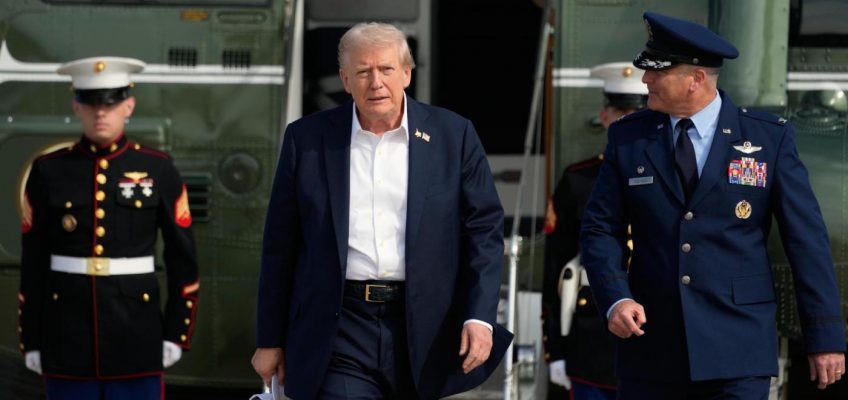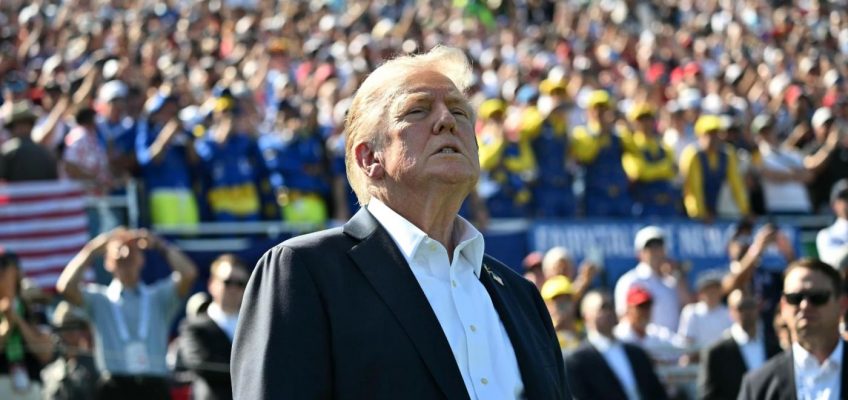By MARK SHERMAN, Associated Press
WASHINGTON (AP) — The Supreme Court on Friday extended an order that allows President Donald Trump’s administration to keep frozen nearly $5 billion in foreign aid, handing him another victory in a dispute over presidential power.
With the three liberal justices in dissent, the court’s conservative majority granted the Republican administration’s emergency appeal in a case involving billions of dollars in congressionally approved aid. Trump said last month that he would not spend the money, invoking disputed authority that was last used by a president roughly 50 years ago.
The Justice Department sought the high court’s intervention after U.S. District Judge Amir Ali ruled that Trump’s action was likely illegal and that Congress would have to approve the decision to withhold the funding.
The federal appeals court in Washington declined to put Ali’s ruling on hold, but Chief Justice John Roberts temporarily blocked it on Sept. 9. The full court indefinitely extended Roberts’ order.
Related Articles
Trump swings by the Ryder Cup, soaking up fans’ love after vowing revenge on more of his enemies
Des Moines, Iowa, public school leader detained by immigration agents, school board says
Former national park superintendents urge Trump administration to close parks in case of shutdown
Sinclair brings Jimmy Kimmel’s show back to its ABC-affiliated stations, ending blackout
In rare rebuke, federal officials discipline ICE officer for shoving woman in New York
The court has previously cleared the way for the Trump administration to strip legal protections from hundreds of thousands of migrants, fire thousands of federal employees, oust transgender members of the military and remove the heads of independent government agencies.
The legal victories, while not final rulings, all have come through emergency appeals, used sparingly under previous presidencies, to fast-track cases to the Supreme Court, where decisions are often handed down with no explanation.
Trump told House Speaker Mike Johnson, R-La., in a letter Aug. 28 that he would not spend $4.9 billion in congressionally approved foreign aid, effectively cutting the budget without going through the legislative branch.
He used what’s known as a pocket rescission. That’s a rarely used maneuver when a president submits a request to Congress toward the end of a current budget year to not spend the approved money. The late notice essentially flips the script. Under federal law, Congress has to approve the rescission within 45 days or the money must be spent. But the budget year will end before the 45-day window closes, and in this situation the White House is asserting that congressional inaction allows it to not spend the money.
The majority wrote in an unsigned order that Trump’s authority over foreign affairs weighed heavily in its decision, while cautioning that it was not making a final ruling in the case.
But that was cold comfort to the dissenters. “The effect is to prevent the funds from reaching their intended recipients — not just now but (because of their impending expiration) for all time,” Justice Elena Kagan wrote in her dissent, joined by Justices Sonia Sotomayor and Ketanji Brown Jackson.
The Trump administration has made deep reductions to foreign aid one of its hallmark policies, despite the relatively meager savings relative to the deficit and possible damage to America’s reputation abroad as people lose access to food supplies and development programs.
Justice Department lawyers told a federal judge last month that another $6.5 billion in aid that had been subject to the freeze would be spent before the end of the fiscal year next Tuesday.
The case has been winding its way through the courts for months, and Ali said he understood that his ruling would not be the last word on the matter.
“This case raises questions of immense legal and practical importance, including whether there is any avenue to test the executive branch’s decision not to spend congressionally appropriated funds,” he wrote.
In August, the U.S. Court of Appeals for the District of Columbia Circuit threw out an earlier injunction Ali had issued to require that the money be spent. But the three-judge panel did not shut down the lawsuit.
After Trump issued his rescission notice, the plaintiffs returned to Ali’s court and the judge issued the order that’s now being challenged.




